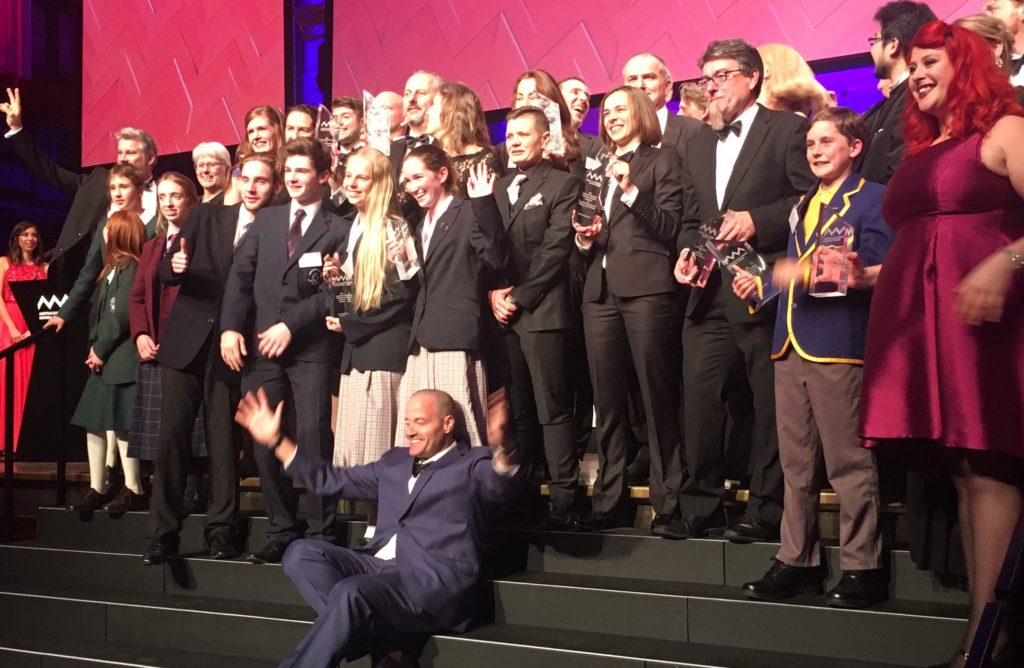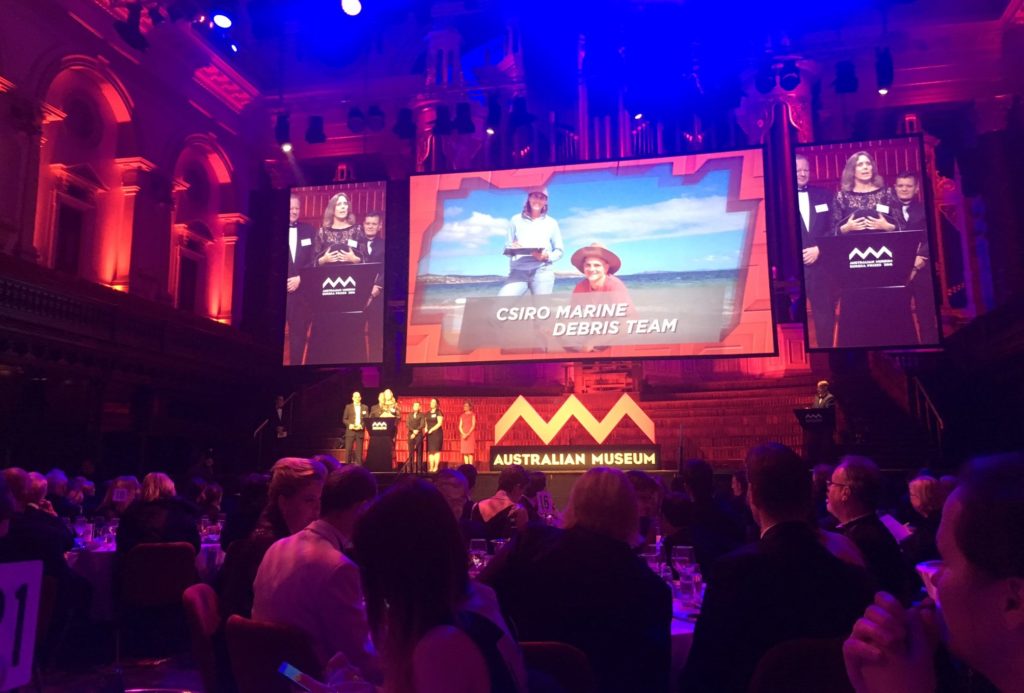It's that time of year again - the glitz and glam of Australia's most prestigious science awards, the Eureka's. We're thrilled that two of our own 'hunters' took out top prizes this year.

Group photo of winners on stage
A bevy of finely dressed (and school uniform-ed) winners at the Eureka Prizes, 2016.
Whilst it may not have the plunging necklines and champagne hangovers of your typical Oscars night (or does it?!?), the Eureka Prizes are equally as prestigious.
Gathering some of the brightest minds of Australian science, the event held last night at the Australian Museum in Sydney celebrated achievements in the fields of research & innovation, leadership, science communication and school science.
We were thrilled to be there to congratulate two of our own winners on the night.
The Marine Debris Team, CSRIO Oceans and Atmosphere
NSW Office of Environment and Heritage Eureka Prize for Environmental Science

Our Marine Debris Team have been on a mission to help save Australia’s wildlife from an ocean and coastal pollution pandemic.
Their world-leading research found that more than half of sea bird species across the globe have eaten plastic. In 35 years’ time this looks set to be 99%! And it’s not just sea birds. Turtles, whales, dolphins, dugongs, fish and many other species are all being killed or injured from marine debris.
By seaplane, foot, 4WD and boat, the team collected data from hundreds of sites on land and at sea across the nation. They found that the plastic on our beaches and in our oceans comes from us! Which means by making changes, we can significantly reduce the amount of litter entering our seas.
The team’s research is now being used to inform policy and consumer choices, both here in Australia and across the globe. To find out more, here’s a blog we prepared earlier.
Dr Lisa Harvey-Smith, CSIRO Astronomy and Space Science
Department of Industry, Innovation and Science Eureka Prize for Promoting Understanding of Australian Science Research
Dr Lisa Harvey-Smith is a black hole hunter and a dynamic communicator bringing astronomy and its real-world impacts to life.
Lisa is the project scientist for our Australian Square Kilometre Array Pathfinder (ASKAP) radio telescope, an instrument helping to transform our understanding of the universe.
Despite a full workload as a research astronomer, what really sets Lisa apart is her strong engagement bringing radio astronomy alive through public lectures, institutions, media, videos, online, and through her public audience, particularly girls and indigenous students as well as her own distance learning astronomy courses.
If you love astronomy, you’ll want to follow Lisa on Twitter.
Also a big congratulations to Professor Gordon Wallace ARC Centre of Excellence for Electromaterials Science, University of Wollongong who was awarded the CSIRO Eureka Prize for Leadership in Innovation and Science.
Professor Gordon Wallace is an internationally renowned researcher in the field of electromaterials science and has cultivated a research vision in the area of ‘intelligent polymers’. Through his leadership and ability to inspire, his collaborative team has pioneered the use of nanotechnology and additive fabrication in renewable energy and medical science.
Well done to all the finalists and winners of this year’s awards… sometime science needs a bit of glamour (and applause).

